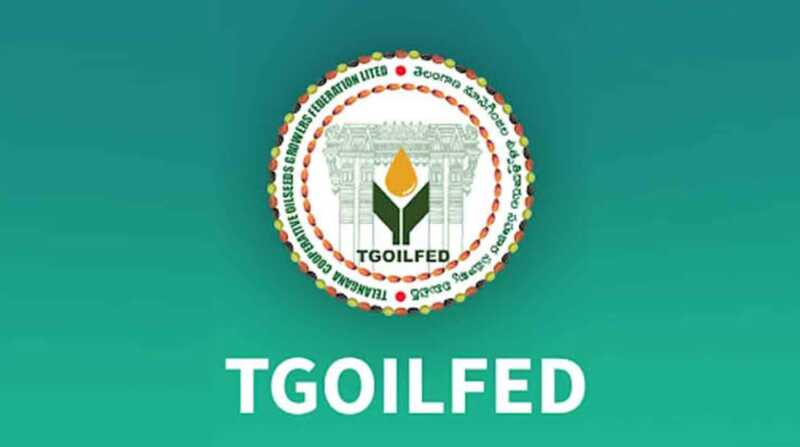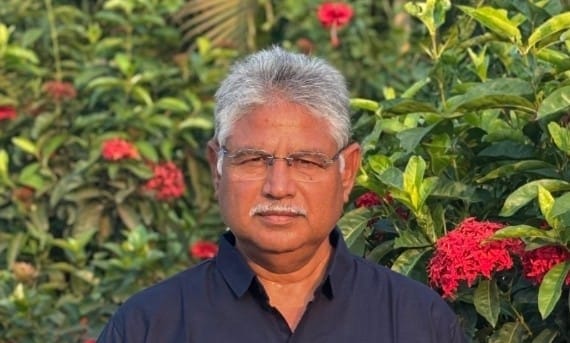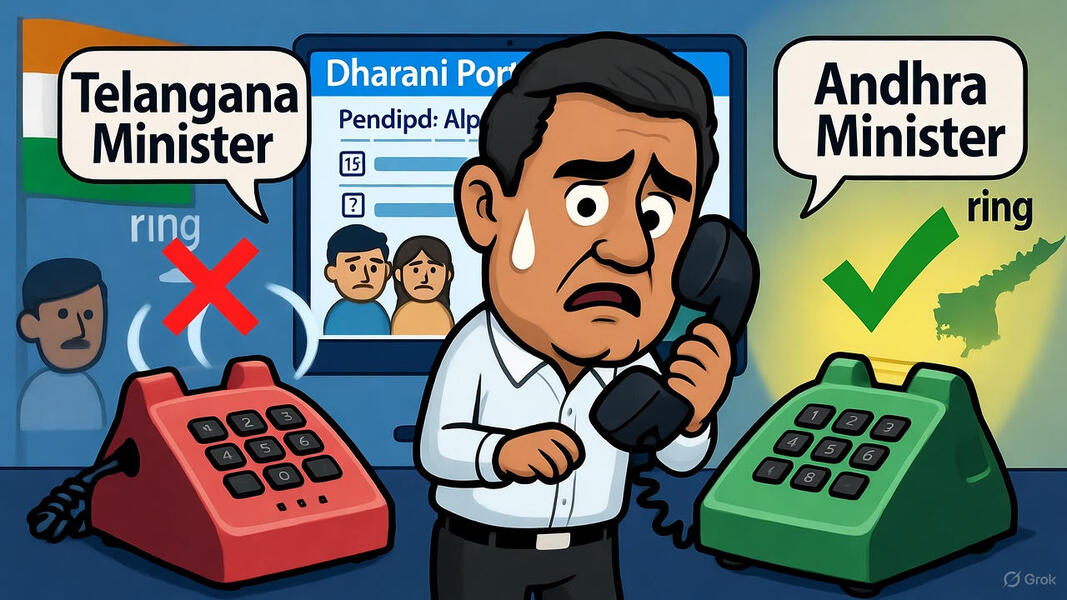- Farmers Suffer Losses from Defective Seedlings
- Uma Maheshwar Reddy, President of Ashwaraopeta Oil Palm Growers Society, demands action.
Article Today, Hyderabad:
Farmers in Telangana have raised strong objections against alleged irregularities and corruption in the Telangana State Oilfed, particularly in the Ashwaraopet zone. The Oil Palm Growers’ Society of the region, led by President Thumburu Umamaheswar Reddy and Secretary Kokkerepati Pullayya, voiced serious concerns over the supply of genetically defective saplings and mismanagement in Oilfed nurseries. The society accused certain officials and private contractors of weakening the organization for their own benefit.

Farmers Suffer Due to Defective Oil Palm Plants
The farmers’ body alleged that Oilfed has been supplying oil palm plants with genetic deformities, which has led to significant crop losses. Many nurseries under Oilfed’s supervision are reportedly being managed by non-technical staff who do not follow the scientific guidelines prescribed by the Indian Institute of Oil Palm Research (IIOPR). These actions violate the rules under the National Mission on Edible Oils (NMEO).
According to guidelines, every imported seed batch must be tested by sending ten germinated samples to IIOPR for quarantine or genetic testing. Shockingly, Oilfed hasn’tfollowed this procedure even once in the last several years. The society claims that plants with more than 25% genetic deformity, like curling leaves, should be destroyed, but Oilfed has been distributing such defective plants to farmers. In one instance, a nursery in Ragalapadu village of Sathupalli Mandal was found to have over 3 lakh defective plants, yet Oilfed still planned to distribute them to farmers, drawing sharp criticism from grower associations.
Mismanagement in Nurseries and Role of Private Contractors
The growers’ society accused private contractors of poorly managing the nurseries and ignoring official norms. Under the NMEO-OP scheme, the central government provides Rs.40 lakh in grants to grow 1 lakh plants in 15 acres. But Oilfed is growing only 5 to 8 lakh plants in the same area, allegedly for profit. The society also alleged that some contractors, in collusion with certain officials, diverted imported saplings to other states and private companies.
In many cases, instead of sourcing quality saplings, contractors collected local seeds from farmers’ fields and raised nurseries with substandard material. This has led to the emergence of “off-type” plants in farmers’ fields—plants that either don’t bear fruit or only produce male flowers, resulting in heavy yield losses. The society estimates that nearly 10,000 acres have been affected by this problem.
No Compensation for Losses — Farmers Shocked
The Oilfed chairman has reportedly acknowledged the problem of defective plants in the fields but refused to offer compensation, which angered the farmers. The society demanded that the government reconsider this and arrange compensation for all affected farmers.
The Oilfed has been advising farmers to uproot the curled plants and replant new ones. However, the society pointed out that replacing just a few plants in a five to eight-year-old orchard is impractical, as the new plants would not survive well in shaded conditions. Moreover, doubts have been raised about the quality of replacement plants currently available. The society questioned whether it is safe to replant 28 to 30-month-old saplings, and what would happen if those too turn out defective after another three years.
Demand for Reforms and Government Intervention…
Due to the Oilfed chairman’s unwillingness to grant compensation, the growers’ body urged farmers not to replant immediately, and instead wait until the government announces a clear policy. The society appealed to Agriculture Minister Tummala Nageswara Rao to fulfill his public promise of securing full compensation from companies if defective plants are found. They further demanded an amendment to the Oil Palm Act to ensure farmers are compensated in such cases.
Investigation and Structural Reform in Oilfed…
The society also demanded an investigation into the roles of officials and contractors who were involved in these issues between 2016 and 2022. It urged the government to remove those responsible and recover the financial losses from them. They proposed that Oilfed should return to directly managing nurseries, instead of outsourcing them to private players.
Referring to a previous departmental inquiry that had ordered a recovery of Rs. 40 lakh from one employee, the society criticized the decision to retain the same official in a key position in Oilfed. They also called for a probe into the alleged import of low-quality third-grade seeds by certain middlemen, and demanded a complete overhaul of the Oilfed system to restore farmers’ trust and ensure transparency.



